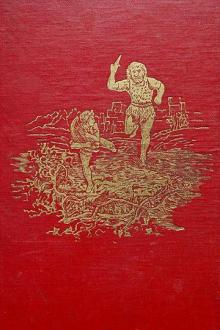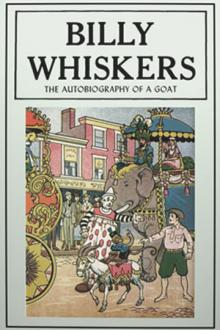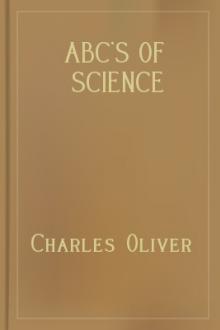The Red Fairy Book - Andrew Lang (best novels for beginners TXT) 📗

- Author: Andrew Lang
- Performer: -
Book online «The Red Fairy Book - Andrew Lang (best novels for beginners TXT) 📗». Author Andrew Lang
Is as fair as you, as fair again.’
When she heard these words she literally trembled and shook with rage.
`Snowdrop shall die,’ she cried; `yes, though it cost me my own life.’
Then she went to a little secret chamber, which no one knew of
but herself, and there she made a poisonous apple. Outwardly it
looked beautiful, white with red cheeks, so that everyone who saw
it longed to eat it, but anyone who might do so would certainly die
on the spot. When the apple was quite finished she stained her
face and dressed herself up as a peasant, and so she went over
the seven hills to the seven Dwarfs’. She knocked at the door, as
usual, but Snowdrop put her head out of the window and called
out:
`I may not let anyone in, the seven Dwarfs have forbidden me
to do so.’
`Are you afraid of being poisoned?’ asked the old woman. `See, I
will cut this apple in half. I’ll eat the white cheek and you can eat
the red.’
But the apple was so cunningly made that only the red cheek
was poisonous. Snowdrop longed to eat the tempting fruit, and when
she saw that the peasant woman was eating it herself, she couldn’t
resist the temptation any longer, and stretching out her hand she
took the poisonous half. But hardly had the first bite passed her
lips than she fell down dead on the ground. Then the eyes of the
cruel Queen sparkled with glee, and laughing aloud she cried:
`As white as snow, as red as blood, and as black as ebony, this
time the Dwarfs won’t be able to bring you back to life.’
When she got home she asked the mirror:
`Mirror, mirror, hanging there,
Who in all the land’s most fair?’
and this time it replied:
`You are most fair, my Lady Queen,
None fairer in the land, I ween.’
Then her jealous heart was at rest—at least, as much at rest
as a jealous heart can ever be.
When the little Dwarfs came home in the evening they found
Snowdrop lying on the ground, and she neither breathed nor stirred.
They lifted her up, and looked round everywhere to see if they
could find anything poisonous about. They unlaced her bodice,
combed her hair, washed her with water and wine, but all in vain;
the child was dead and remained dead. Then they placed her on
a bier, and all the seven Dwarfs sat round it, weeping and sobbing
for three whole days. At last they made up their minds to bury
her, but she looked as blooming as a living being, and her cheeks
were still such a lovely colour, that they said:
`We can’t hide her away in the black ground.’
So they had a coffin made of transparent glass, and they laid her
in it, and wrote on the lid in golden letters that she was a royal
Princess. Then they put the coffin on the top of the mountain, and
one of the Dwarfs always remained beside it and kept watch over it.
And the very birds of the air came and bewailed Snowdrop’s death,
first an owl, and then a raven, and last of all a little dove.
Snowdrop lay a long time in the coffin, and she always looked
the same, just as if she were fast asleep, and she remained as white
as snow, as red as blood, and her hair as black as ebony.
Now it happened one day that a Prince came to the wood and
passed by the Dwarfs’ house. He saw the coffin on the hill, with
the beautiful Snowdrop inside it, and when he had read what was
written on it in golden letters, he said to the Dwarf:
`Give me the coffin. I’ll give you whatever you like for it.’
But the Dwarf said: `No; we wouldn’t part with it for all the
gold in the world.’
`Well, then,’ he replied, `give it to me, because I can’t live
without Snowdrop. I will cherish and love it as my dearest possession.’
He spoke so sadly that the good Dwarfs had pity on him,
and gave him the coffin, and the Prince made his servants bear
it away on their shoulders. Now it happened that as they were
going down the hill they stumbled over a bush, and jolted the coffin
so violently that the poisonous bit of apple Snowdrop had
swallowed fell out of her throat. She gradually opened her eyes,
lifted up the lid of the coffin, and sat up alive and well.
`Oh! dear me, where am I?’ she cried.
The Prince answered joyfully, `You are with me,’ and he told her
all that had happened. adding, `I love you better than anyone
in the whole wide world. Will you come with me to my father’s palace
and be my wife?’
Snowdrop consented, and went with him, and the marriage was
celebrated with great pomp and splendour.
Now Snowdrop’s wicked stepmother was one of the guests
invited to the wedding feast. When she had dressed herself very
gorgeously for the occasion, she went to the mirror, and said:
`Mirror, mirror, hanging there,
Who in all the land’s most fair?’
and the mirror answered:
`My Lady Queen, you are fair, ‘tis true,
But Snowdrop is fairer far than you.’
When the wicked woman heard these words she uttered a
curse, and was beside herself with rage and mortification. At first
she didn’t want to go to the wedding at all, but at the same time
she felt she would never be happy till she had seen the young
Queen. As she entered Snowdrop recognised her, and nearly
fainted with fear; but red-hot iron shoes had been prepared for the
wicked old Queen, and she was made to get into them and dance
till she fell down dead.[29]
[29] Grimm.
THE GOLDEN GOOSETHERE was once a man who had three sons. The youngest of
them was called Dullhead, and was sneered and jeered at and
snubbed on every possible opportunity.
One day it happened that the eldest son wished to go into the
forest to cut wood, and before he started his mother gave him a fine
rich cake and a bottle of wine, so that he might be sure not to suffer
from hunger or thirst.
When he reached the forest he met a little old grey man who
wished him `Good-morning,’ and said: `Do give me a piece of that
cake you have got in your pocket, and let me have a draught of
your wine—I am so hungry and thirsty.’
But this clever son replied: `If I give you my cake and wine I
shall have none left for myself; you just go your own way;’ and
he left the little man standing there and went further on into the
forest. There he began to cut down a tree, but before long he made
a false stroke with his axe, and cut his own arm so badly that he
was obliged to go home and have it bound up.
Then the second son went to the forest, and his mother gave
him a good cake and a bottle of wine as she had to his elder brother.
He too met the little old grey man, who begged him for a morsel of
cake and a draught of wine.
But the second son spoke most sensibly too, and said:
`Whatever I give to you I deprive myself of. Just go your own way, will
you?’ Not long after his punishment overtook him, for no sooner
had he struck a couple of blows on a tree with his axe, than he cut
his leg so badly that he had to be carried home.
So then Dullhead said: `Father, let me go out and cut wood.’
But his father answered: `Both your brothers have injured
themselves. You had better leave it alone; you know nothing
about it.’
But Dullhead begged so hard to be allowed to go that at last
his father said: `Very well, then—go. Perhaps when you have hurt
yourself, you may learn to know better.’ His mother only gave
him a very plain cake made with water and baked in the cinders,
and a bottle of sour beer.
When he got to the forest, he too met the little grey old man,
who greeted him and said: `Give me a piece of your cake and a
draught from your bottle; I am so hungry and thirsty.’
And Dullhead replied: `I’ve only got a cinder-cake and some
sour beer, but if you care to have that, let us sit down and eat.’
So they sat down, and when Dullhead brought out his cake he
found it had turned into a fine rich cake, and the sour beer into
excellent wine. Then they ate and drank, and when they had
finished the little man said: `Now I will bring you luck, because
you have a kind heart and are willing to share what you have with
others. There stands an old tree; cut it down, and amongst its
roots you’ll find something.’ With that the little man took leave.
Then Dullhead fell to at once to hew down the tree, and when
it fell he found amongst its roots a goose, whose feathers were all
of pure gold. He lifted it out, carried it off, and took it with him
to an inn where he meant to spend the night.
Now the landlord of the inn had three daughters, and when
they saw the goose they were filled with curiosity as to what this
wonderful bird could be, and each longed to have one of its golden
feathers.
The eldest thought to herself: `No doubt I shall soon find a good
opportunity to pluck out one of its feathers,’ and the first time
Dullhead happened to leave the room she caught hold of the goose
by its wing. But, lo and behold! her fingers seemed to stick fast
to the goose, and she could not take her hand away.
Soon after the second daughter came in, and thought to pluck a
golden feather for herself too; but hardly had she touched her
sister than she stuck fast as well. At last the third sister came
with the same intentions, but the other two cried out: `Keep off!
for Heaven’s sake, keep off!’
The younger sister could not imagine why she was to keep off,
and thought to herself: `If they are both there, why should not I be
there too?’
So she sprang to them; but no sooner had she touched one of
them than she stuck fast to her. So they all three had to spend the
night with the goose.
Next morning Dullhead tucked the goose under his arm and
went off, without in the least troubling himself about the three girls
who were hanging on to it. They just had to run after him right
or left as best they could. In the middle of a field they met the
parson, and when he saw this procession he cried: `For shame,
you bold girls! What do you mean by running after a young fellow
through the fields like that? Do you call that proper behaviour?’
And with that he caught the youngest girl by the hand to try and
draw her away. But directly he touched her he hung on himself,
and had to run along with the rest of them.
Not long after the clerk came that way, and was much surprised
to see the parson following the footsteps of





Comments (0)